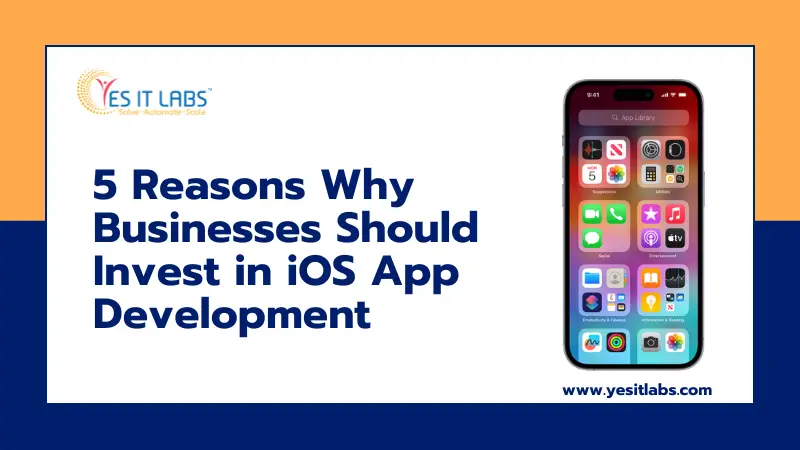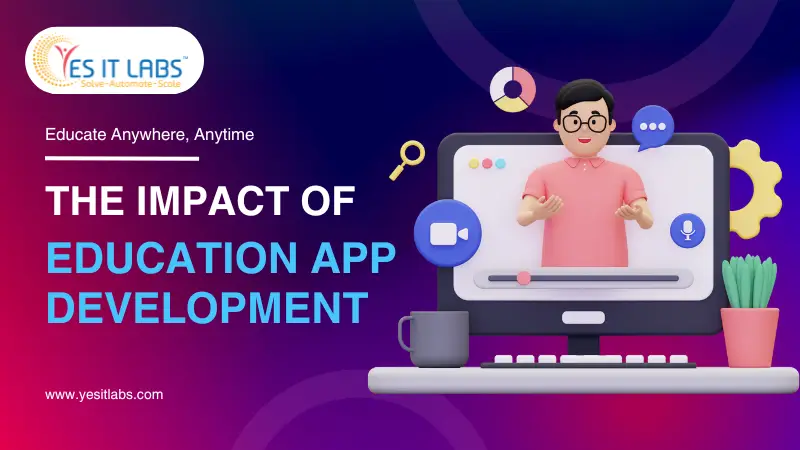

Educate Anywhere, Anytime: The Impact of Education App Development
In today’s digital age, where smartphones are practically extensions of our hands, education has found a new frontier through app development. The ubiquity of smartphones and tablets has made learning more convenient and accessible than ever before. With just a few taps on a screen, learners can access a wealth of educational resources anytime, anywhere.
Whether it’s learning a new language during a commute, mastering mathematics through interactive exercises, or exploring scientific concepts through immersive simulations, educational apps have revolutionized the way we absorb knowledge. These apps have transformed idle moments into valuable learning opportunities, turning everyday activities like waiting in line or commuting into productive study sessions.
Moreover, the portability and versatility of mobile devices allow users to seamlessly integrate learning into their daily routines, making education more flexible and adaptable to modern lifestyles. So, let’s dive into the world of education app development and explore its impact on shaping the future of learning in the digital age.
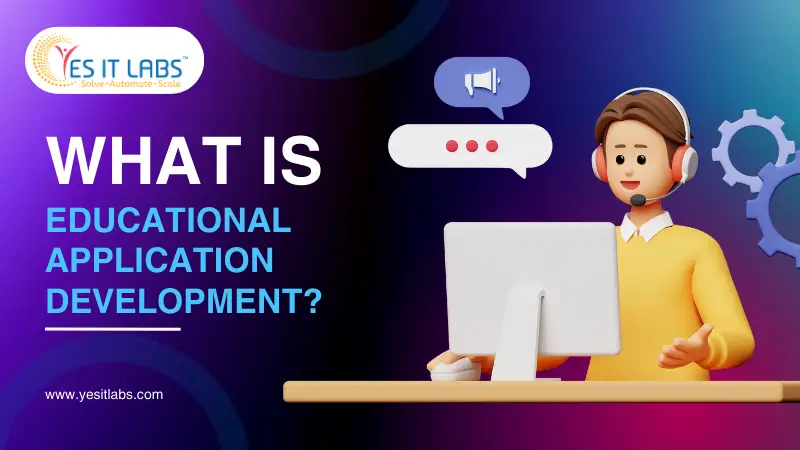
What is Educational Application Development?
An educational application, commonly referred to as an “edtech app” or simply an “education app,” is a software program designed specifically to facilitate learning and educational activities. These applications leverage technology to enhance traditional teaching methods, providing users with interactive, engaging, and personalized learning experiences. Educational apps cater to a wide range of learners, including students of all ages, educators, parents, and lifelong learners.
Educational applications can cover various subjects and topics, from academic subjects like math, science, language arts, and history to specialized skills such as coding, music, art, and even mindfulness. They may include features such as tutorials, quizzes, games, simulations, virtual laboratories, digital textbooks, video lessons, and collaborative tools.
The primary goal of educational applications is to make learning more accessible, engaging, and effective. They enable users to learn at their own pace, reinforce concepts through repetition, provide instant feedback, and adapt to individual learning styles and preferences. Additionally, educational apps often incorporate multimedia elements such as videos, animations, audio clips, and interactive exercises to enhance comprehension and retention.
Educational applications are available across various platforms, including smartphones, tablets, computers, and even dedicated educational devices. They can be downloaded from app stores or accessed through web browsers, depending on the developer’s distribution strategy.
Overall, educational applications play a vital role in modern education by supplementing traditional teaching methods, expanding access to learning resources, fostering creativity and critical thinking skills, and empowering learners of all backgrounds to achieve their educational goals.
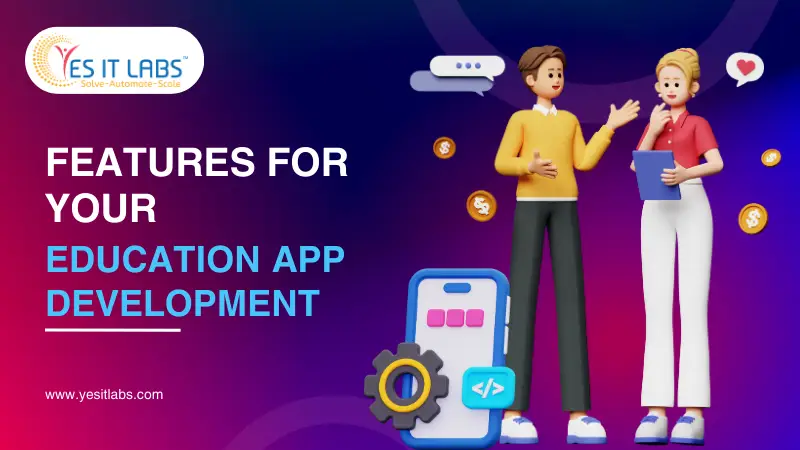
Features for Your Education App Development
When it comes to creating an educational app, functionality and user experience are paramount. Here are some essential features to consider:
- User-friendly Interface: Ensure that your app is intuitive and easy to navigate, catering to users of all ages and backgrounds.
- Personalized Learning: Incorporate features that allow users to set their learning goals, track their progress, and receive personalized recommendations based on their performance.
- Interactive Content: Include multimedia elements such as videos, animations, quizzes, and interactive simulations to make learning engaging and enjoyable.
- Gamification: Implement gamified elements like rewards, badges, and leaderboards to motivate users and make learning feel like a fun challenge.
- Offline Access: Provide offline access to content so that users can continue learning even without an internet connection.
- Assessment and Feedback: Include features for quizzes, assessments, and progress tracking, along with providing timely feedback to users to help them improve.
- Social Integration: Allow users to connect with peers, share achievements, collaborate on projects, and participate in discussions to foster a sense of community.
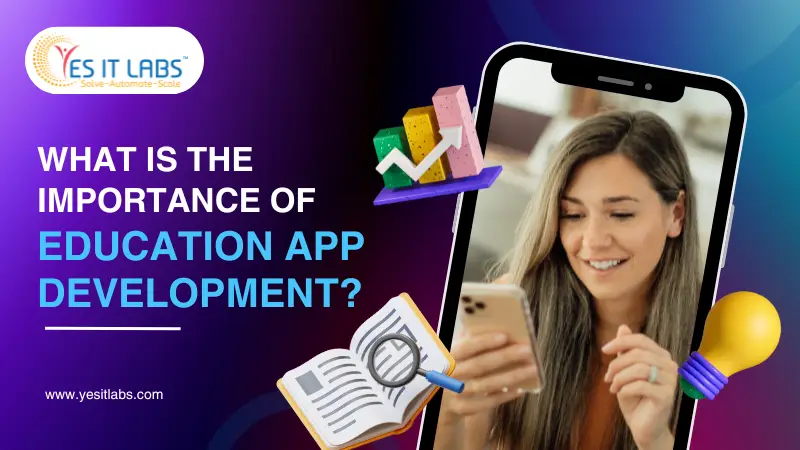
What is the Importance of Education App Development?
The significance of education app development cannot be overstated. Here’s why it’s so crucial:
- Accessibility: Educational apps break down barriers to learning by providing access to quality education anytime, anywhere, irrespective of geographical location or socioeconomic status.
- Engagement: By leveraging interactive and gamified features, educational apps keep learners engaged and motivated, leading to better retention and understanding of concepts.
- Personalization: With adaptive learning algorithms, educational apps can tailor content to suit individual learning styles and preferences, ensuring a more personalized and effective learning experience.
- Lifelong Learning: Education apps promote a culture of lifelong learning by offering a diverse range of courses and subjects, allowing users to continue their education beyond traditional classrooms.
- Cost-effectiveness: Compared to traditional textbooks and courses, educational apps are often more affordable or even free, making learning accessible to a broader audience.
- Scalability: Education apps have the potential to reach millions of users worldwide, making them a scalable solution for disseminating knowledge on a global scale.
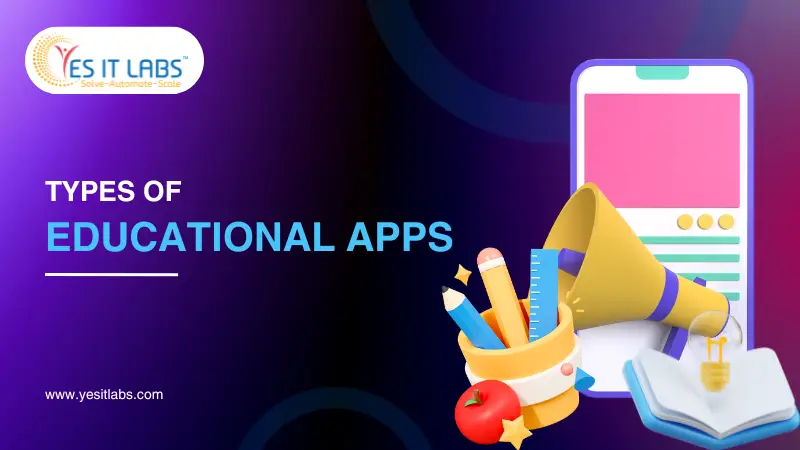
Types of Educational Apps
Educational apps come in various forms, catering to different learning objectives and age groups. Some common types include:
- Language Learning Apps: These apps help users master new languages through interactive lessons, vocabulary drills, and pronunciation practice.
- STEM Education Apps: STEM (Science, Technology, Engineering, and Mathematics) apps introduce users to concepts in these fields through hands-on experiments, simulations, and problem-solving challenges.
- Exam Preparation Apps: Designed to help students prepare for standardized tests and exams, these apps offer practice questions, study guides, and performance analytics.
- Subject-specific Apps: These apps focus on specific subjects such as mathematics, history, or literature, providing comprehensive resources and learning materials.
- Skill Development Apps: From coding and graphic design to photography and music, skill development apps offer tutorials and exercises to hone various skills.
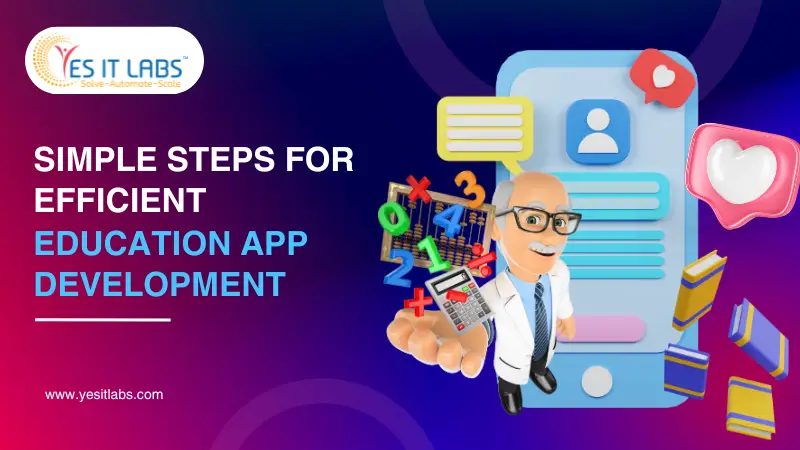
Simple Steps for Efficient Education App Development
If you’re considering developing an educational app, here are some simple steps to guide you through the process:.
- Market Research: Identify your target audience, research competitors, and analyze market trends to understand the needs and preferences of potential users.
- Define Objectives: Clearly define the goals and objectives of your app, outlining the learning outcomes you aim to achieve and the features required to support them.
- Design and Prototyping: Create wireframes and prototypes to visualize the user interface and user experience, iterating based on feedback from stakeholders and usability testing.
- Development: Select a reliable mobile app development company with expertise in custom application development. Work closely with developers to build and refine the app, ensuring functionality and performance.
- Testing and Feedback: Conduct rigorous testing to identify and fix any bugs or usability issues. Gather feedback from beta testers and users to make further improvements.
- Launch and Marketing: Prepare for the app launch by creating a marketing strategy to generate buzz and attract users. Utilize social media, app store optimization, and other marketing channels to reach your target audience.
- Maintenance and Updates: Once the app is live, continue to monitor its performance, gather user feedback, and release updates to enhance functionality and address any issues that arise.
In conclusion
Education app development has transformed the way we learn, making education more accessible, engaging, and personalized than ever before. By leveraging the power of technology, we can educate anywhere, anytime, empowering learners of all ages to unlock their full potential. Whether you’re a mobile app development company or an educator with a vision, now is the time to harness the potential of educational apps and make a positive impact on the future of learning.
Tags: best mobile app development company usa, education app, education app development, educational applications, mobile app, mobile app development, mobile app development company




